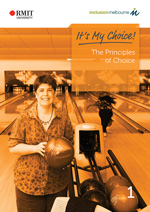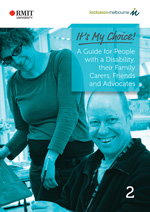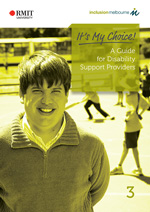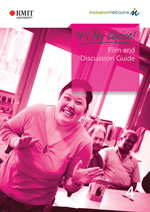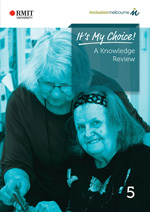Choice
A new model that empowers people to make choices about lifestyle, daily activities, support and citizenship
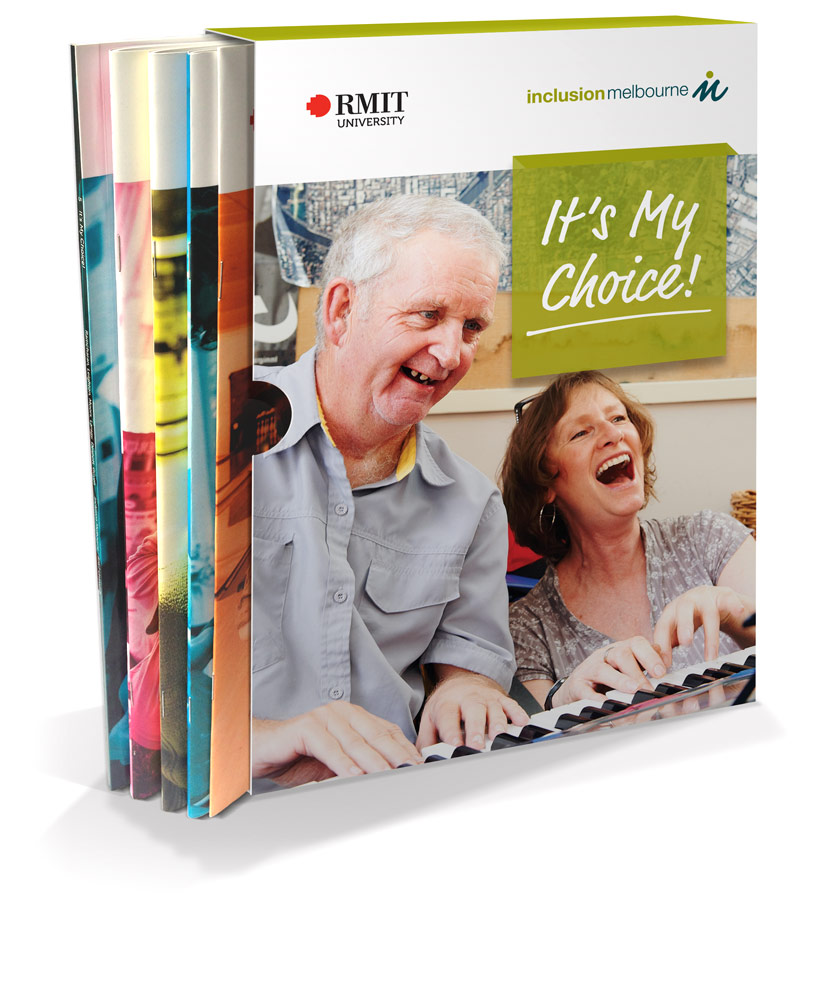
While choice is often spoken about, as a practical task it is far from easy to implement. Developed in partnership with RMIT University, this toolkit consists of five guides that support people with a disability, families and support providers to understand and explore the principles of choice. It also provides examples, worksheets and other practical tools to support people to develop their choice making abilities.
To organise a copy of the Its My Choice Toolkit (Total of 5 books) – please contact the team at projects@inclusiondesignlab.org.au
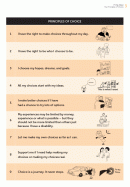
The 9 Principles of Choice
For more details on the Principles of Choice please download Volume 1 above.
Principle 1
I have the right to make choices throughout my day. These are called mundane or everyday choices.
Principle 2
I have the right to be who I choose to be. These are called lifestyle choices
Principle 3
I can choose what I want, my hopes, dreams, and goals. These are called pervasive choices.
Principle 4
All actions to pursue choices start with me. I am the source and originator of my own choices. Choice is diverse.
Principle 5
My choices are likely to be greater and more expansive where I have more knowledge and experience to inform them. Building knowledge and experience is important to making choices informed by past experience.
Principle 6
My personal experiences may be limited by money, experience or what is possible. Nobody is completely free to choose and pursue any choice they wish. What is important is whether the limitations I experience are reasonable or not.
Principle 7
I have the right to exercise my choice to the greatest degree possible without interference or competence-inhibiting support. All support must be competency-enhancing.
Principle 8
Support for choice-making can take place where necessary at several places in my journey: I can learn from others by discussion, by seeking guidance, listening to other people’s experiences and discussing challenges.
Principle 9
Choice is a continuing journey and not just a one-off action.
It’s my Choice! discussion guide and films
Click on the image below of Volume 4. Film and Discussion Guide to download in a PDF format.
This Film and Discussion Guide refers to the three short films on this page about making your own choices. Use this guide to help with discussions about the choices being made by Sarah, David and Aaron in each film.
In Sarah’s own time.
David’s Artful choices
It’s not that simple, it’s not that easy
It’s My Choice Training
This training session will focus on the “It’s My Choice!” toolkit that was developed by Inclusion Melbourne in partnership with RMIT. The toolkit looks at choice as a concept and the ways in which we can assist the people we support to make informed choices.
Topics to be covered:
- The It’s My Choice! 9 Principles of Choice
- The key issues surrounding choice for people with disability: informed choice vs false choice; choice and the NDIS; citizenship; respecting past choices, and planning for the future
- Reasonable and unreasonable limitations to choice?
- The latest techniques that can be used to ensure people have informed choice
- How individuals can assist in the choice making process, through involvement with a Circle of Support.
Best suited to: disability professionals, advocates and family carers.



